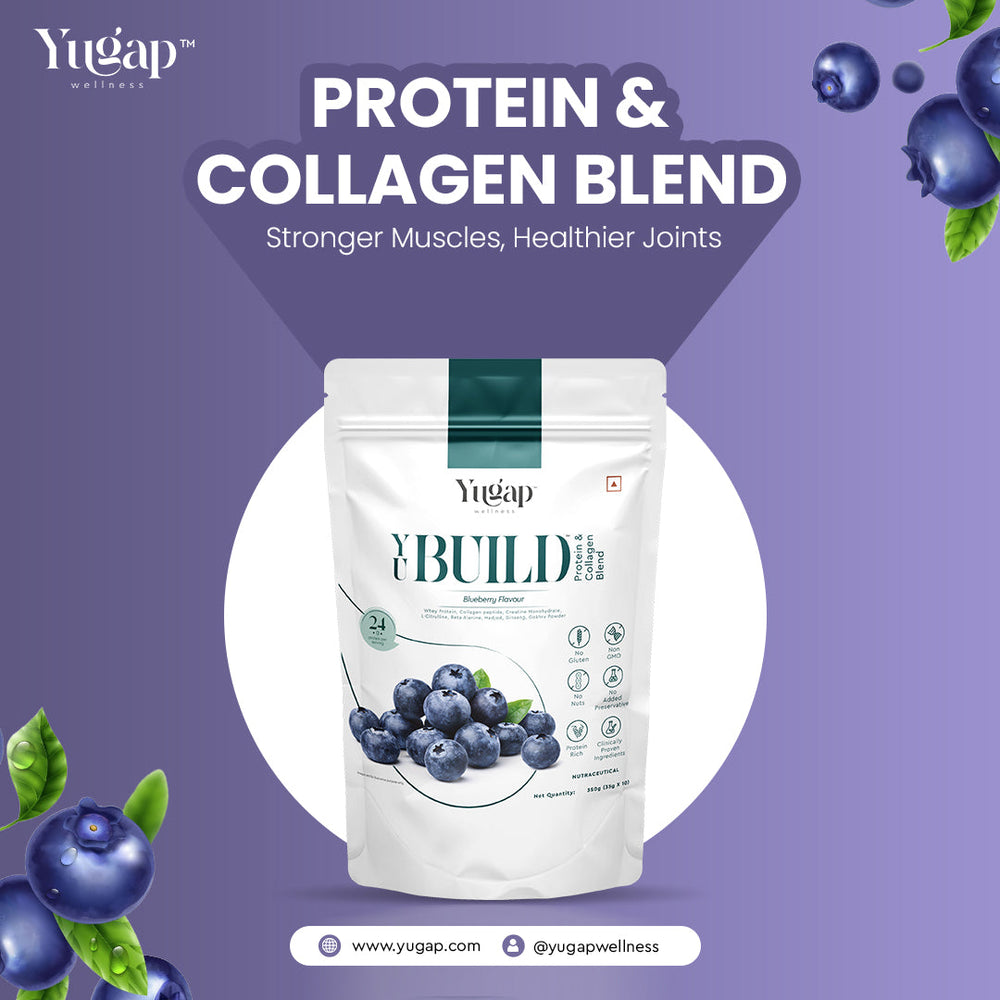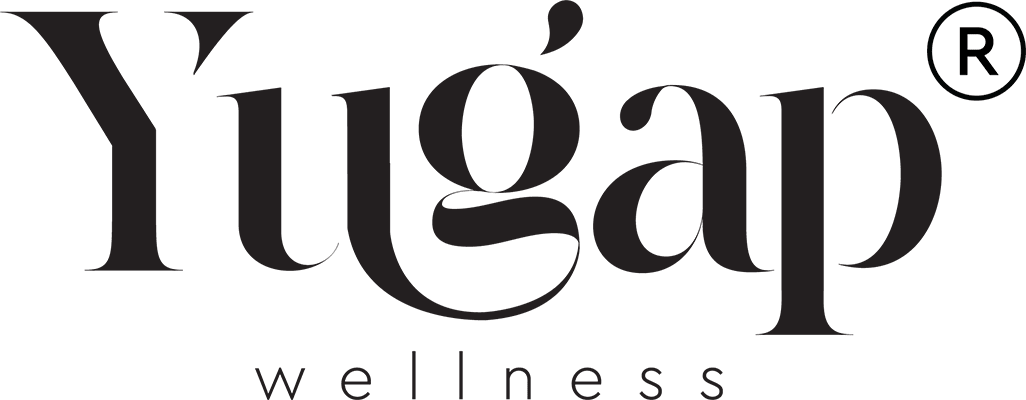
Collagen vs. Whey Protein: Which One Supports Muscle & Joint Health?
Collagen vs. Whey Protein:
Discover both whey protein and collagen variations as well as their dissimilar mechanisms for supporting joint and muscle health. Research which supplement meets your fitness needs regarding wellness and health targets.
Whey protein, together with collagen, stands as the two most popular supplements that support muscle and joint health. The two supplements play different roles to improve musculoskeletal health by increasing tendon and skin elasticity and aiding muscle recovery post-intense workouts. You can decide the most suitable option by clarifying the particular advantages of collagen and whey protein. The upcoming analysis compares collagen along with whey protein supplements based on their effects on joint health and muscle growth alongside recovery as well as overall well-being.
What is collagen?
The body's structure relies on collagen as a protein substance that builds all skin tissue and bones together with muscles and tendons and ligaments. Collagen functions like an adhesive substance that strengthens body structures while preventing them from becoming rigid. Among all human proteins, collagen represents the largest share since it ensures proper tissue and organ structural stability(McIntosh, 2023).
How collagen benefits joint health
Whey protein acts as the top protein supplement, which simultaneously drives muscle development and repairs tissues. Whey protein leads as a protein supplement due to its substantially high branched-chain amino acid (BCAA) content containing leucine that ranks among essential factors triggering muscle protein synthesis (MPS). The body employs MPS following physical exertion to generate new muscle proteins that result in increased strength together with enhanced muscle development.
Proven effective in helping regenerate cartilage and promote joint function, collagen should be supplemented. A study has shown that participants who took collagen experienced significant reduction in joint pain and better mobility for people taking collagen, especially in their knees. The perfect supplement for osteoarthritis patients and individuals with joint injuries or age-related cartilage damage is collagen because of its damage-repair properties.
New collagen production by your body uses the amino acids released through collagen breakdown, including glycine with proline and hydroxyproline. Intake of collagen provides essential compounds that strengthen cartilage through the breakdown process of amino acids.Collagen‘s impact on muscle health.
Collagen‘s impact on muscle health
The protein substance collagen has multiple health functions but people typically link it to skin conditions and joint restoration. Collagen provides increased flexibility and strength. Collagen does not function analogously to protein powders for muscle growth but assists with post-workout recovery of the body.
Your body requires muscle repair of tiny tears that result from physical activity after an intense workout session. Collagen enables protein synthesis, which depends on its special amino acid profile for tissue repair purposes. After endurance training or resistance exercises, collagen intake helps decrease sore muscles and accelerate healing periods.
What is whey protein?
The manufacturing of cheese produces whey protein, which represents a complete form of milk-based protein. People within fitness and wellness appreciate whey protein because it absorbs quickly while supplying elite amounts of amino acids. The complete protein whey provides all nine essential amino acids, which makes it an effective choice to build muscle and aid recovery processes differently than collagen does (WHEY PROTEIN: Overview, Uses, Side Effects, Precautions, Interactions, Dosing and Reviews, n.d.).
How whey protein supports muscle health
Whey protein stands as the reference standard for protein supplements since it grants superior benefits for muscle growth and tissue recovery functions. The high BCAA concentration in whey protein especially includes leucine, which plays an essential role in muscle protein synthesis (MPS). Coming from physical exercise, the body activates muscle protein synthesis to manufacture new proteins that culminate in enhanced muscle strength and development.
Muscle breakdown during workouts leads to a requirement for repair, which enables the muscles to become stronger. Whey protein enters the bloodstream rapidly because it allows the muscles to obtain amino acids speedily. During recovery exercise, muscle protein synthesis occurs faster when whey protein is taken to cater to all the needs.
Whey protein and how it impacts joint health
The popular use of whey protein primarily supports muscle well-being yet it provides supplementary support to joint health.
Whey protein contributes indirectly to joint health but provides a weaker support than collagen does for these functions. The relief of joint discomfort together with improved mobility makes collagen preferable to whey protein. Your muscle-building efforts will benefit from adding whey protein into your routine despite the preference for collagen to maintain joints.
Collagen vs. Whey Protein
Now that we have discussed the individual benefits of collagen and whey protein, let’s break down the key differences between the two to help you make an informed choice for your fitness and health goals (Rd, 2025).
Primary benefits
-
People primarily take collagen as a supplement for its benefits, which support joint health together with skin elasticity. The restoration along with the rejuvenation of cartilage and connective tissues occurs when using this therapy, thus becoming beneficial for people who experience joint pain or wish to increase their joint mobility.
-
The primary application of whey protein exists in the development of muscle mass together with rehabilitative practices after training sessions. It is a speedy, muscle building and repairing protein that offers muscles what they need to recover and develop after exercising.
Amino acids profile
-
Collagen is full of glycine, proline and hydroxyproline, important for the production of collagen. Different amino acids are never found in the same ratio in any other proteins.
-
Whey protein contains all the nine conventional amino acids, including branched-chain amino acids (BCAAs) for example, leucine, that are also particularly for you to muscle protein synthesis.
Absorption rate
-
Collagen is digested much slower than whey protein. This is one pattern in a long-term view, such as joint health or skin regeneration.
-
Whey protein is absorbed quickly, which is why it is the recovery of choice for post-workout; your muscles will require a quick influx of amino acids.
Best For
-
Collagen is meant for those who want to boost their joint health, reduce inflammation, and want their skin to be more of an elastic property. Its particularly beneficial to elderly people or those suffering from joint wear and tear.
-
Whey protein is the best protein for athletes and bodybuilders, as well as anyone wanting to build muscle mass and promote muscle development.
Which one should you go for?
The selection of collagen or whey protein depends on what your fitness and health objectives are.
People who need joint improvements and cartilage healing alongside adaptable skin tissue should select collagen over other options. It has been researched much for its role in lowering joint pain and raising flexibility.
The combination of whey protein and collagen supplements might provide an efficient method for enhancing your muscle and joint health. Several fitness enthusiasts and athletes find interest in this workout combination because it provides the advantages of both main routines.
If you are looking to elevate your fitness, YuBuild is your go-to option. This premium blend combines high-quality whey protein with collagen, digestive enzymes, and powerful botanicals to support muscle growth, recovery, and overall wellness.
FAQs
1. What is the primary difference between collagen and whey protein?
The structural protein collagen performs its main functions by supporting joint health as well as maintaining skin elasticity and tissue health throughout the body. The substance contains glycine and proline amino acids that heal cartilage while providing joint comfort. Whey protein is a complete protein, i.e., branched-chain amino acids (BCAAs), such as leucine, that help in muscle growth, recovery and post-workout repair and whey protein contains all nine essential amino acids. Whey is better for helping to build muscle and speed recovery post-workout, and collagen works best for the connective tissues.
2. Can collagen slow down the loss of muscle?
Even though collagen is not vital to muscle development, it is significant for muscle health. But the tendons and ligaments are also held together by collagen, which provides muscles with the shape to move bones, and collagen is the strong structural support material of bones. Additionally, collagen can also be beneficial to aid in your muscle recovery along with preventing any injuries while you are working out by the elasticity and strength of those connective tissues being improved. As well as that, collagen contains amino acids such as glycine and proline, which may be used by the muscle so that you can repair the muscles that were intensely exercised. But if we want actual muscle growth, then whey is better because whey has a higher concentration of leucine, which is an amino acid that is proven to help stimulate muscle protein synthesis.
3. How does collagen help the joints?
The biological process of cartilage formation with connective tissues in joints requires essential collagen. All of these also occur naturally as you age, as collagen production that naturally occurs in the body decreases. Collagen supplements replace the levels and increase the strength and elasticity of collagen. At the same time, they stimulate the repair of damaged cartilage to ease the symptoms of osteoarthritis and other joint conditions. Most importantly, studies have found that consuming collagen can minimize joint pain and wrangle flexibility in the joints, a relief for arthritis sufferers or those who suffer wear and tear injuries.
4. Is it necessary to take both collagen and whey protein for optimal health?
The combination of collagen and whey protein supplements can deliver complete benefits to your muscle and joint wellness, although both supplements are not mandatory. Collagen works best to maintain joint movement in combination with supporting connective tissue restoration yet whey protein functions perfectly for muscle tissue development following rigorous exercise. People who play sports or wish to benefit from maximum muscle development along with strong joints should take collagen and whey protein supplements at the same time. Both amino acids from the combination will deliver continuous nutritional support for your muscles along with enhanced joint well-being and flexibility.
References:
-
McIntosh, J. (2023, November 29). What is collagen, and why do people use it? https://www.medicalnewstoday.com/articles/262881
-
Rd, L. D. (2025, February 10). Collagen vs. Whey: Which Protein Is Best for Muscles and Skin? Health. https://www.health.com/collagen-vs-whey-8780612
-
WHEY PROTEIN: Overview, uses, side effects, precautions, interactions, dosing and reviews. (n.d.). https://www.webmd.com/vitamins/ai/ingredientmono-833/whey-protein
